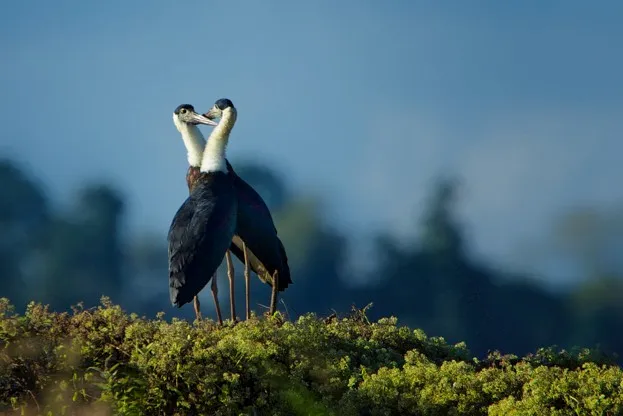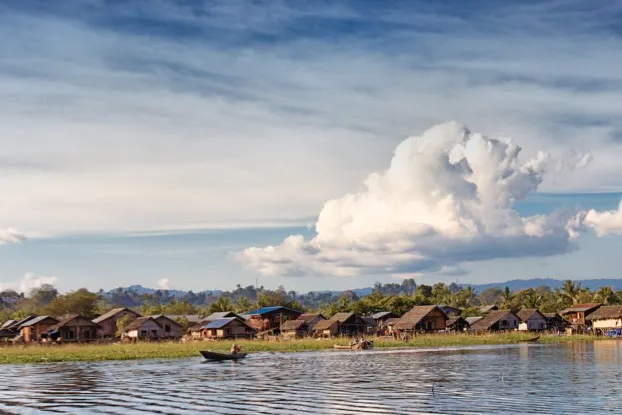The largest freshwater lake in Myanmar in South-east Asia has been recognised for the importance of its wildlife and to the people who rely on it for their livelihoods.
Indawgyi Lake – in the remote north of Myanmar – teems with an estimated 20,000 water birds, freshwater turtles and 93 species of fish.
Marking the recent World Wetlands Day, the Government announced that the lake was being designated as a ‘Ramsar Site’, an international conservation treaty for wetlands around the world.
The lake provides a home for threatened birds such as the Sarus crane and woolly-necked stork, as well as a wide variety of more common species such as purple swamphens and tufted and ferruginous ducks.

Woolly-necked storks breed around Indawgyi Lake. © www.bjornolesen.com / Fauna & Flora International
Conservation groups hope the lake’s new status – as well as the increasing political stability in, and return of democracy to, the country – will help attract tourists to the area.
Fauna & Flora International (FFI) has been working to help local people address issues such as overfishing in the lake and the unsustainable extraction of forest products in the surrounding watershed since 2010, and has recently helped to initiate a community-based ecotourism project offering activities such as kayaking, cycling and trekking.
"You have to be prepared to rough it a bit if you want to visit Indawgyi Lake," said FFI's Asia-Pacific regional director Tony Whitten, "but it is worth it. In a few years time, it will be better known."

Up to 30,000 people live around Indawgyi Lake, relying on it for freshwater, fish and forest products. ©FFI
But considerable challenges remain. Illegal goldmining in streams that flow into the lake is causing the build-up of mercury pollution, while a long-running conflict between the Kachin Independence Army (KIA) and the Myanmar Government continues some 90km away.
"As long as armed conflict prevails, it will be very difficult for the Government to stop the mining," said FFI's Myanmar programme director Frank Momberg. "If there is a ceasefire, negotiations can take place with all concerned parties, including the KIA and the army, to phase out gold-mining."
